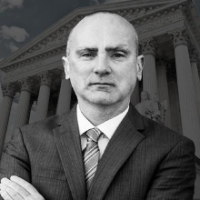Dallas Felony Lawyer, Texas
Sponsored Law Firm
-
 x
x

Click For More Info:
-
Law Office of Robert R. Jones III
2411 Emancipation Ave, Suite 202, Houston, TX 77004» view mapCriminal Defense Expert Representation for Reasonable Rates
If you need representation, call me 24/7.
800-883-8760
Robert Keating
✓ VERIFIEDAttorney Rob Keating has successfully represented individuals charged with crimes ranging from serious felony offenses to minor municipal citations in... (more)
Christopher Lankford
✓ VERIFIEDChristopher Lankford is licensed to practice law in all Texas state courts, Federal court (Northern District of Texas), and the Supreme Court of the U... (more)
Craig Allen Dameron
With over 15 years of experience representing clients charged with DWI and other criminal charges in Tarrant County and throughout the Dallas-Fort Wor... (more)
Darlina Crowder
Attorney Darlina C. Crowder provides criminal defense representation for clients in the Plano, Texas area. She has been practicing law in the U.S. Dis... (more)
FREE CONSULTATION
CONTACTFREE CONSULTATION
CONTACT Robert Jones San Antonio, TX
Robert Jones San Antonio, TX AboutLaw Office of Robert R. Jones III
AboutLaw Office of Robert R. Jones III Practice AreasSpecializations
Practice AreasSpecializations





